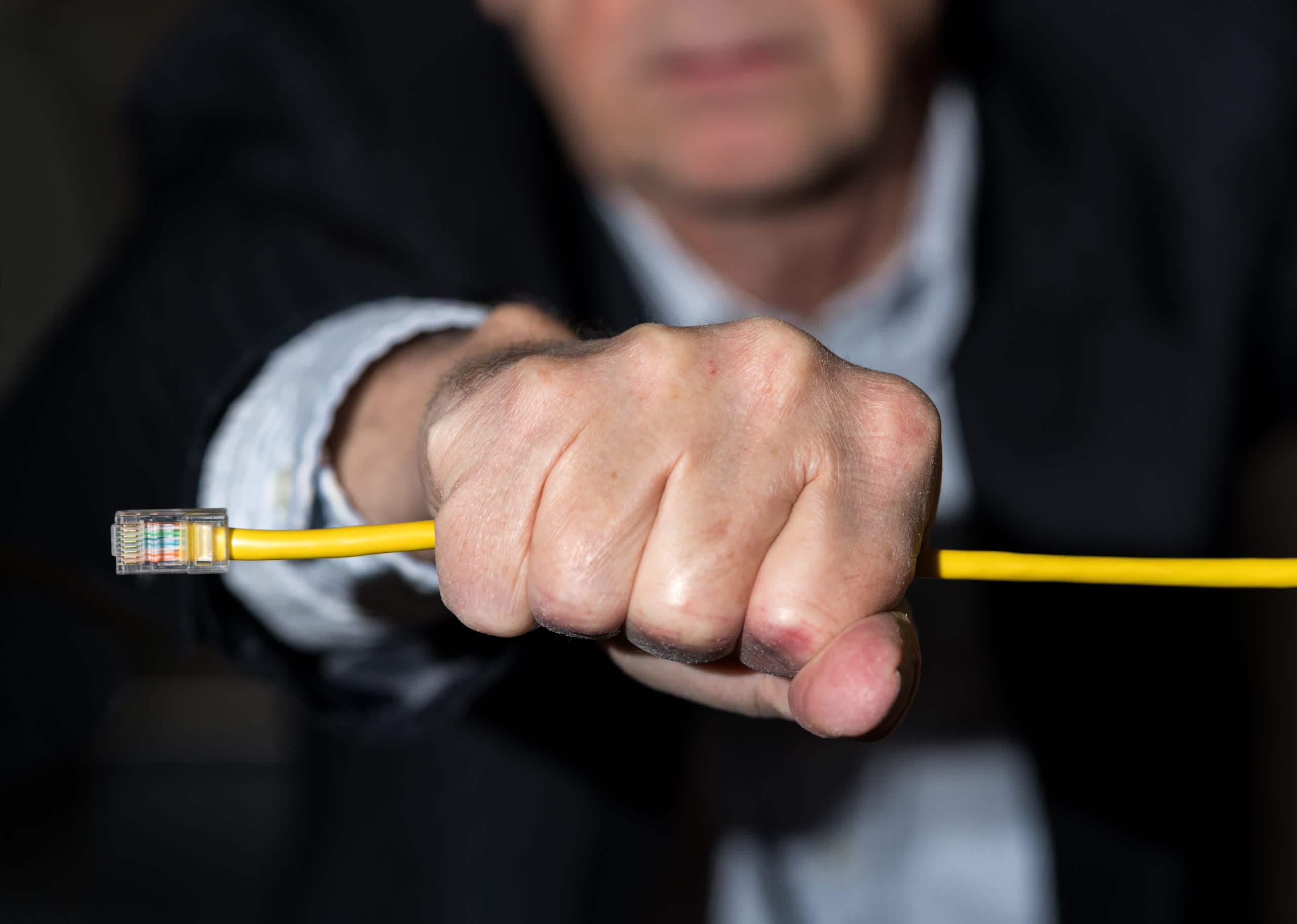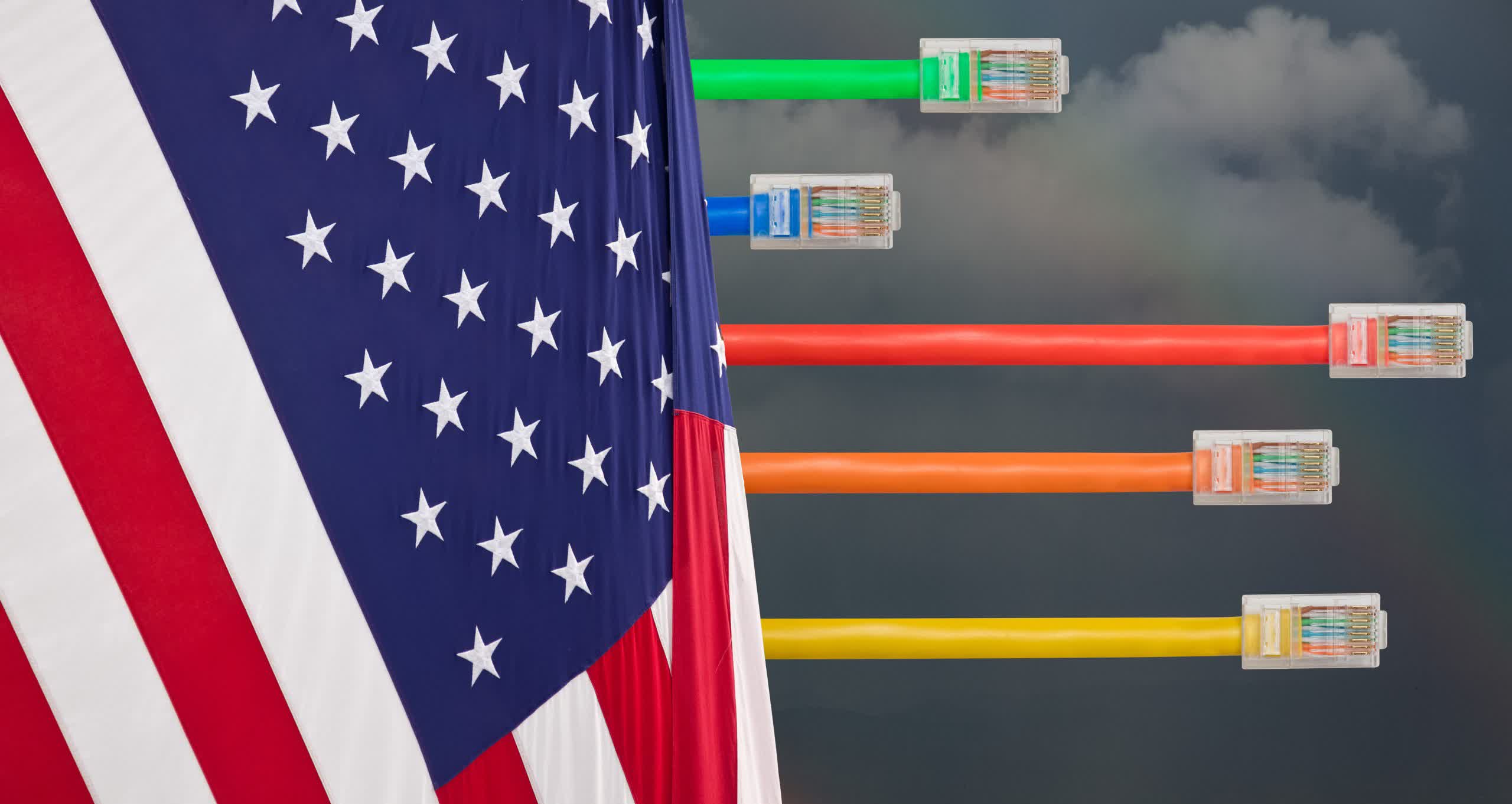What just happened? Here we go again. In a nearly identical vote from 2015, the FCC approved a proposal to move ISPs back under Title II public utility rules. It's a partisan tug-of-war that has been going on for 20 years. It will undoubtedly end up in the courts again, but the last two times, judges said the FCC can do what it wants.
On Thursday, the FCC voted 3-2 to reinstate "net neutrality" rules. The proposal will essentially classify internet service providers as public utilities governed under Title II instead of Title I. The FCC claims the rules would prevent broadband providers from blocking or throttling traffic unless companies paid more, among other things.
Today's vote is the second time the Commission has voted to assign itself as the governor and regulator of private ISPs. The first time was in 2015 under the Obama administration. Those rules were then repealed in 2017, also along party lines, during the Trump administration.
Despite protests and cries that it was the end of a "free internet," nothing much seemed to change, and the fervor died out. There were some early lawsuits and claims alleging throttling, but nothing came of them. Eventually several states including California and Montana created their own net neutrality laws and mandates.
While proponents still claim that the government needs to regulate ISPs to prevent them from trying any funny business, FCC Chair Jessica Rosenworcel says it is now a matter of "national security."
"Today, there is no expert agency ensuring that the internet is fast, open, and fair... Today, we begin a process to make this right. We propose to reinstate enforceable, bright-line rules to prevent blocking, throttling, and paid prioritization," said Rosenworcel. "When we stripped state-affiliated companies from China of their authority to operate in the United States, that action did not extend to broadband services, thanks to the retreat from Title II. This is a national security loophole that needs to be addressed."
However, opponents are calling it a power grab. Commissioner Brendan Carr points to the 2017 repeal and the fact that the internet "didn't break" as an example of why the rules are unnecessary.
"When my FCC colleagues and I voted in 2017 to overturn the Obama Administration's failed, two-year experiment with Title II, activists and politicians alike guaranteed the American public that the internet would quite literally break without it," Carr said in a Wednesday statement, a day before the vote. "Since that didn't happen, the FCC shouldn't reimpose the rules now. We already have a free and open internet today, without Title II."

Evan Swarztrauber, Senior Advisor at the Foundation for American Innovation, agrees with Carr. He points out that the fear-mongering rhetoric failed to materialize after the 2017 repeal, and internet service got better and cheaper when adjusted for inflation. Swarztrauber also believes that the FCC is barking up the wrong tree.
"In past iterations of this debate, we were told by Title II proponents that the rules were needed to protect free speech and internet openness," Swarztrauber told TechSpot. "The tragic irony is that the Big Tech companies who pushed for 'net neutrality' are the ones that have abused the open internet – not ISPs."
He points out that Google, Amazon, and Apple are all currently in court on antitrust issues that have been harming consumers for years, yet not one ISP is in court right now for throttling or blocking consumers or companies. The most recent throttling case appears to be FTC v. AT&T 2019, which settled out of court for $60 million.
Swarztrauber also says the "free speech argument" is a joke since "ISPs are the only layer of the internet stack not manipulating digital speech." And what's that about national security?
"So now we are told that Title II is critical for national security. Somehow, for the past 20 years of this discussion, the national security talking points eluded the topic of net neutrality. But now we are meant to believe that these rules are so critical and urgent to protect our country that the agency must act now!"
Interestingly, Chairwoman Rosenworcel has headed the FCC for two years so far. She has been actively vocal in the net neutrality debate, yet it is only in the weeks before the vote that she began tying it to national security.
Even though the Title II rules passed the vote, the issue is far from over. The Commission will now open the proposal up for public comment, which includes a period for rebuttals and ex parte presentations and critiques. After peer review and potential revisions prompted by sound arguments and feedback, the FCC will vote again.
If passed, it will most assuredly face legal challenges just as the first implementation and the subsequent repeal did. In both cases, the courts upheld the FCC's decision, saying that the agency can impose or repeal rules as it sees fit as long as it provides reasonable justification.
Image credit: Steve Heap
